- Home
- Carl Sagan
Comet Page 37
Comet Read online
Page 37
Newburn, Ray L., and Jurgen Rahe. “The International Halley Watch.” Journal of the British Interplanetary Society 37, 28, 1984.
Newsletters of the International Halley Watch. Periodicals produced by the NASA Jet Propulsion Laboratory, Publications 410, since August 1, 1982.
Planetary Society Fact Sheets on Halley Comet Spacecraft, available from The Planetary Society, 65 North Catalina Avenue, Pasadena, CA 91106.
“Report of the Comet Rendezvous Science Working Group.” NASA Technical Memorandum 87564, 1985.
Sagdeev, R. Z., et a1. “Cometary Probe of the Venera-Halley Mission.” Advances in Space Research 2, 83, 1983.
Wilford, John Noble. “U.S. and Soviet Cooperating on Collection of Comet Dust.” New York Times, December 21, 1984.
Yeomans, Donald K., and John C. Brandt. “The Comet Giacobini-Zinner Handbook: An Observer’s Guide.” NASA/JPL Publication 400–254, 1985.
CHAPTER 19
Dyson, Freeman. “The World, the Flesh, and the Devil.” Third J. D. Bernal Lecture, delivered at Birkbeck College, London. Reprinted in C. Sagan, ed. Communication with Extraterrestrial Intelligence (CETI), MIT Press, Cambridge, MA, 1973.
Gaffey, Michael J., and Thomas B. McCord. “Mining Outer Space.” Technology Review 79 (7), 51, June 1977.
Harwit, Martin, and E. E. Salpeter. “Radiation from Comets near Neutron Stars.” Astrophysical Journal 186, L37, 1973.
MIT Student Project in Systems Engineering, “Project Icarus.” MIT Press, Cambridge, MA, 1968.
Sagan, Carl. Pale Blue Dot: A Vision of the Human Future in Space. Random House, New York, 1994.
CHAPTER 20
Arkin, William M., and Richard W. Fieldhouse. Nuclear Battlefields: Global Links in the Arms Race. Ballinger, Cambridge, MA, 1985.
Cruikshank, D. P., W. K. Hartmann, and D. J. Tholen. “Colour, Albedo, and Nucleus Size of Halley’s Comet.” Nature 315, 122, 1985.
Newburn, Ray L., and Donald K. Yeomans. “Halley’s Comet.” Annual Review of Earth and Planetary Science 10, 297, 1982.
*Collected in Stephen Jay Gould, The Flamingo’s Smile: Reflections in Natural History. W.W. Norton, New York, 1985.
About the Authors
CARL SAGAN was the David Duncan Professor of Astronomy and Space Sciences and Director of the Laboratory for Planetary Studies at Cornell University. A Pulitzer Prize-winning author, he played a leading role in NASA’s exploration of the planets and recently received the Public Welfare medal, the highest award of the National Academy of Sciences. His Peabody and Emmy Award-winning thirteen-part television series Cosmos has now been seen in more than sixty countries by over 500 million people. The accompanying book of the same name is the best-selling science book ever published in the English language.
ANN DRUYAN, Secretary of the Washington-based Federation of American Scientists, was the Creative Director of NASA’s Voyager Interstellar Message Project. A writer of the Cosmos television series, her work has appeared in The New York Times Magazine, The Washington Post, Parade, and many other publications. Ms. Druyan is a cowriter of the story and a producer of the forthcoming Warner Bros. motion picture, Contact.

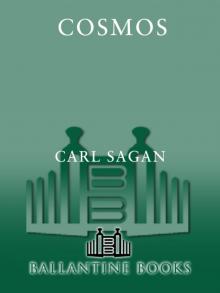 Cosmos
Cosmos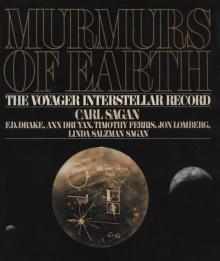 Murmurs of Earth
Murmurs of Earth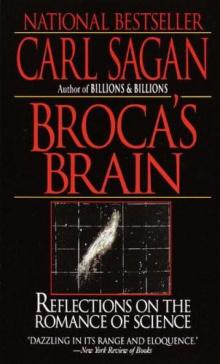 Broca's Brain
Broca's Brain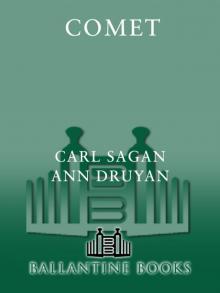 Comet
Comet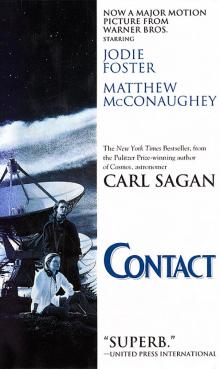 Contact
Contact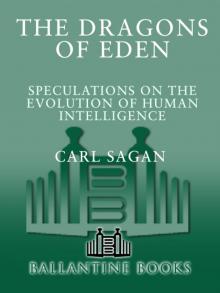 Dragons of Eden
Dragons of Eden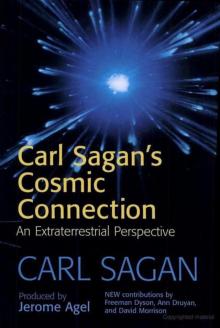 Cosmic Connection
Cosmic Connection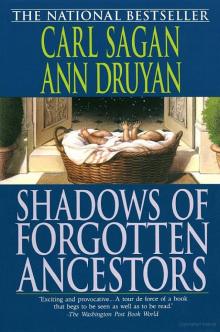 Shadows of Forgotten Ancestors
Shadows of Forgotten Ancestors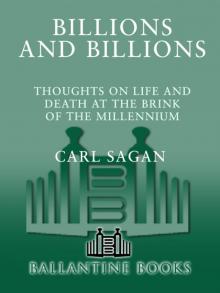 Billions & Billions
Billions & Billions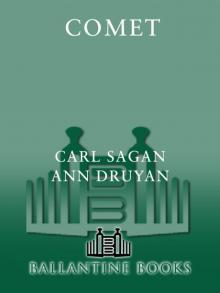 Comet, Revised
Comet, Revised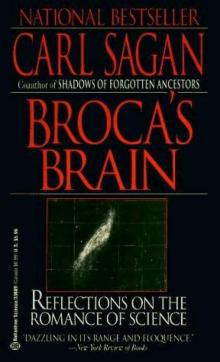 Broca's Brain: The Romance of Science
Broca's Brain: The Romance of Science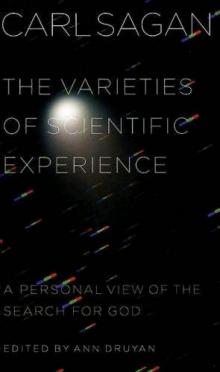 The Varieties of Scientific Experience: A Personal View of the Search for God
The Varieties of Scientific Experience: A Personal View of the Search for God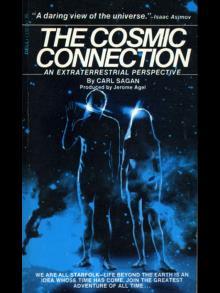 The Cosmic Connection
The Cosmic Connection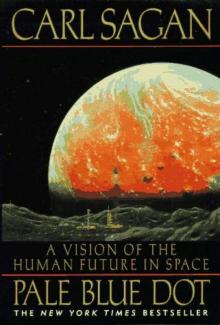 Pale Blue Dot: A Vision of the Human Future in Space
Pale Blue Dot: A Vision of the Human Future in Space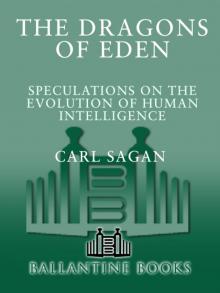 The Dragons of Eden
The Dragons of Eden